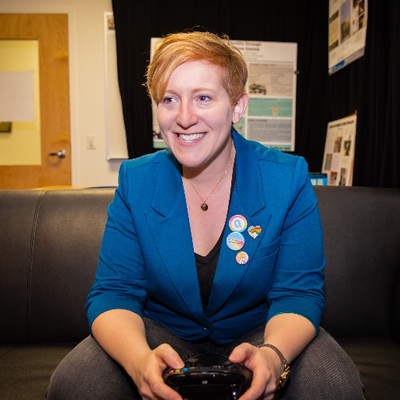I’ve been “on leave” from UC Irvine this past academic year as I’ve wrapped up my postdoc at USC, but really soon I’ll actually, officially be starting my position at UCI. I’m teaching my first UCI courses this coming fall — a big undergrad lecture and my first (!) seminar oriented toward PhD students. I’ve taught MFAs before, but PhDs are a different game, and I’m excited to dive in.
I got to design the graduate seminar from the ground up, which is really exciting. It’s called “Technology, Sexuality, and Gender.” Here’s the course description:
In the contemporary moment, expressions of sexuality and gender are increasingly overlapping with experiences of technology, digital media, and digital culture. Desire and identity are being explored and performed in online spaces, via mobile applications, in video games, and through digitally-mediated communication. In fact, gender, sexuality, and sex itself play important roles in all forms of technology, both at present and across the history of emerging and evolving computational media, not just those forms that seem most directly related to romance or the body. This class surveys some of the many ways in which sexuality and gender intersect with the study of digital media and the practices, communities, rhetorics, and imaginaries that surround it. Though sexuality and gender are the focus of the course, intersectional frameworks will also be key.
Topics covered in this course will include: the gendered and queer histories of contemporary technology; gender, race, and the material production of technology; gender in/and video games, including questions of feminism, trans experiences, and constructions of masculinity; LGBTQ topics and queer theory in video games; gender and sexuality in virtual worlds; pornography and the internet; sex and mobile technologies; gendered speech and emoting in online spaces; social media and non-heteronormative communities; teledildonics and sex (with) machines; intimacy and virtual reality; gender bias in code and algorithms.
This course is interdisciplinary by nature and offers a variety of conceptual and methodological perspectives on studying gender and sexuality. Graduate students from a variety of academic backgrounds are encouraged to enroll, including those from information studies, science and technology studies, media studies, gender studies, queer studies, anthropology, sociology, and related fields in the humanities, social sciences, and computer sciences.
I’m hoping for a diverse, dynamic group. If you’re a UCI grad student, come check it out — or feel free to get in touch with questions. Can’t wait!

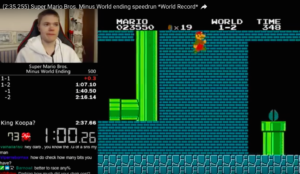 Back in March, I had the wonderful opportunity to give an invited guest talk as part of the
Back in March, I had the wonderful opportunity to give an invited guest talk as part of the 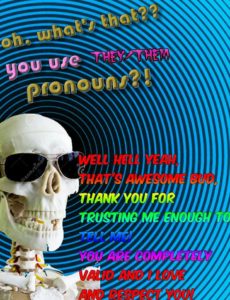 With assistance from some amazing students and peers, I put together this helpful, friendly
With assistance from some amazing students and peers, I put together this helpful, friendly 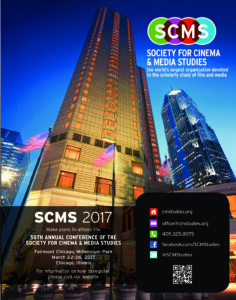 This March, at the Society of Cinema and Media Studies Conference in Chicago, Teddy Diana Pozo, Whitney Pow, and I put on a pretty rad panel that explored the relationship between
This March, at the Society of Cinema and Media Studies Conference in Chicago, Teddy Diana Pozo, Whitney Pow, and I put on a pretty rad panel that explored the relationship between 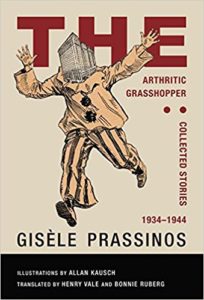
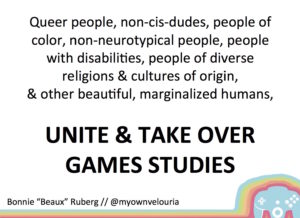 Thanks very much to my co-panelists Edmond Chang, Evan Lauteria, and Timothy Welsh for a wonderful round table at the 2017 Popular Culture Association & American Culture Association Conference in San Diego this weekend!
Thanks very much to my co-panelists Edmond Chang, Evan Lauteria, and Timothy Welsh for a wonderful round table at the 2017 Popular Culture Association & American Culture Association Conference in San Diego this weekend!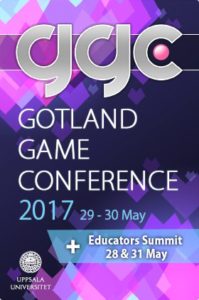 It’s been a few years since my last trip to the
It’s been a few years since my last trip to the 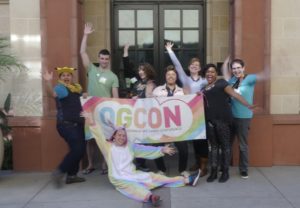 The 4th annual Queerness and Games Conference (QGCon) took place in Los Angeles this weekend, and I’m very happy to say that it was a huge success. QGCon 2017 was hosted by my very own
The 4th annual Queerness and Games Conference (QGCon) took place in Los Angeles this weekend, and I’m very happy to say that it was a huge success. QGCon 2017 was hosted by my very own 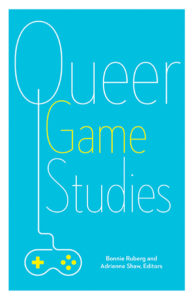 I’m thrilled to announce that Queer Game Studies, the edited volume that Adrienne Shaw have been working on for the last three and a half years, is finally out! It’s available on
I’m thrilled to announce that Queer Game Studies, the edited volume that Adrienne Shaw have been working on for the last three and a half years, is finally out! It’s available on 